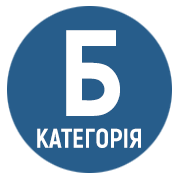SOME CRITICAL REMARKS ON MYKHAІLO DRAHOMANOV'S OPINION ON THE LACK OF SYSTEMATIC WORLDVIEW AND SYSTEMATIC EDUCATION OF TARAS SHEVCHENKO
DOI:
https://doi.org/10.24919/2522-4700.44.14Keywords:
T. Shevchenko, M. Drahomanov, system education, holistic worldview, ancient culture, culture of enlightenment, classical German philosophy.Abstract
The aim of the article is to study the level of theoretical views of Taras Shevchenko. Rethinking the legacy of a prominent Ukrainian is more important than ever. Both the founders of Ukrainian theoretical thought (M.P. Drahomanov) and modern researchers do not have an clear position on his theoretical ideas. Therefore, the scientific novelty of the article can be considered in the discovery of a number of facts that contradict the popular belief that Taras Shevchenko was a "rough diamond" and indicate that he had all the conditions to receive a very high-quality education and the formation of systematic, holistic worldview, advanced for his time. That is, the authors undertake to refute the semi-mystical view of Taras Shevchenko, according to which his talent appeared "out of nowhere", without proper education, without any influence on contemporary theoretical thought, or even without any special efforts on his part. To achieve this goal, we used the method of selecting facts that would confirm the working hypothesis that the education, received by Taras Shevchenko, mostly corresponds to the level at which the contemporary education was in general. Since the authors understand that such a method cannot be called impartial, a comparative method was used to compare the education of T. Shevchenko and Lev Tolstoy. The content analysis of the works of writers themselves about their education was widely used: "Autobiographies" and the novel "Princess" by Taras Shevchenko, and the novels "Childhood" and "Adolescence" by Lev Tolstoy. Most of the attention in the article is focused on the selection and analysis of the facts that show that a great influence on the formation of Taras Shevchenko's worldview was his thorough acquaintance with the basics of ancient culture, the ideas of French and German enlightenment and classical German philosophy.
References
Галич А.И. Опыт науки изящного. Русские эстетические трактаты первой трети XIX в. В 2-х т. Т. 2. веб-сайт. URL: http://az.lib.ru/g/galich_a_i/ text_1825_opyt_nauki.shtml (дата звернення: 30.03.2022)
Герої та знаменитості в українській культурі : [кол. монографія]. ред.-упоряд. О. Гриценко. К. : [УЦКД], 1999. С. 97–165.
Григорович В.И. Избранные труды. СПб. : Лема, 2012. 480 с.
Драгоманов М. П. Вибране («...мій задум зложити очерк історії цивілізації на Україні»). К. : Либідь, 1991. 688 с.
Жадько В. Оточення Шевченка. Ян Рустем. URL: http://svitlytsia.crimea.ua/?section=article&artID=12549 (дата звернення: 30.03.2022)
Жадько В. Тарас Шевченко і Софія Енгельгардт. URL: https://skrynka-pandory.blogspot.com/2017/03/blog-post_356.html (дата звер- нення: 30.03.2022).
Зайцев П. Життя Тараса Шевченка. Нью-Йорк – Париж – Мюнхен : 1955. 400 с.
Котяш І. Інтерпретація постаті Т. Шевченка у сучасних українських та польських працях. URL: https://md-eksperiment.org/post/20190304- interpretaciya-postati-t-shevchenka-u-suchasnih-pracyah (дата звернення: 30.03.2022)
Микитенко Ю. Античність у творчості Тараса Шевченка. Вісник НТШ. 2011. № 46. С. 16–21.
Пріцак О. Шевченко – пророк. К. : 1993 рік. 33 с.
Рожкова І.Г. Грецькі античні мотиви в творчості Тараса Шевченка та їх тлумачення з погляду неоелліністики. Науковий вісник Міжнародного гуманітарного університету. Сер.: Філологія. 2020, № 46, том 2. С. 92–96.
Скляренко Г. Я. Інтерпретації образа Тараса Шевченка в українському мистецтві ХХ століття URL: file:///C:/Users/Admin/ Downloads/44%20 (1).pdf (дата звернення: 30.03.2022).
Спогади про Тараса Шевченка. Упоряд. і приміт. В. С. Бородіна і М. М. Павлюка; передм. В. Є. Шубравського. К. : Дніпро, 1982. 547 с.
Толстой Л. Дитинство URL: https://www.ukrlib.com.ua/world/printit. php?tid=8398 (дата звернення: 30.03.2022).
Федько А.В. Еволюція образу Тараса Шевченка в українському мистецтві кінця ХХ–ХХІ століття . Молодий вчений, № 5(20), ч. 4, К. : 2015. С. 66–69.
Франко І. Я. Тарас Шевченко. Зібрання творів: В 50-ти т. К. : 1983, т. 39, с. 248–255.
Чавдаров С.Х. Педагогічні ідеї Тараса Григоровича Шевченка. К. : Радянська школа, 1953. 208 с.
Шевченківська енциклопедія в 6 томах: К. : НАН України. Ін-т л-ри ім. Т.Г. Шевченка. 2015. Том 5. 1040 с.
Шевченко Т. Г. Біографія. К., 1984. 560 с.
Шевченко Т.Г. Автобіографія. Зібрання творів: У 6 т. К. : Наукова думка, 2003. Т. 5. С. 191–193.
Шевченко Т.Г. Близнецы. Зібрання творів: У 6 т. К. : Наукова думка, 2003. Т. 4. С. 11–119.
Шевченко Т.Г. Усні оповідання, записані іншими особами Зібрання творів: У 6 т. К. : Наукова думка, 2003. Т. 4. С. 327–334.
Шевченко Т.Г. Художник. Зібрання творів: У 6 т. К. : Наукова думка, 2003. Т. 4. С. 120–207.
Шевченко Т.Г. Щоденник. Зібрання творів: У 6 т. К. : Наукова думка, 2003. Т. 5. С. 9–187.
Martynova K. Taras Shevchenko: Ukrainian Liberty Idol. 5.03.2022. URL: https://www.dailyartmagazine.com/taras-shevchenko-a-ukrainianliberty- idol/ (дата звернення: 30.03.2022)


